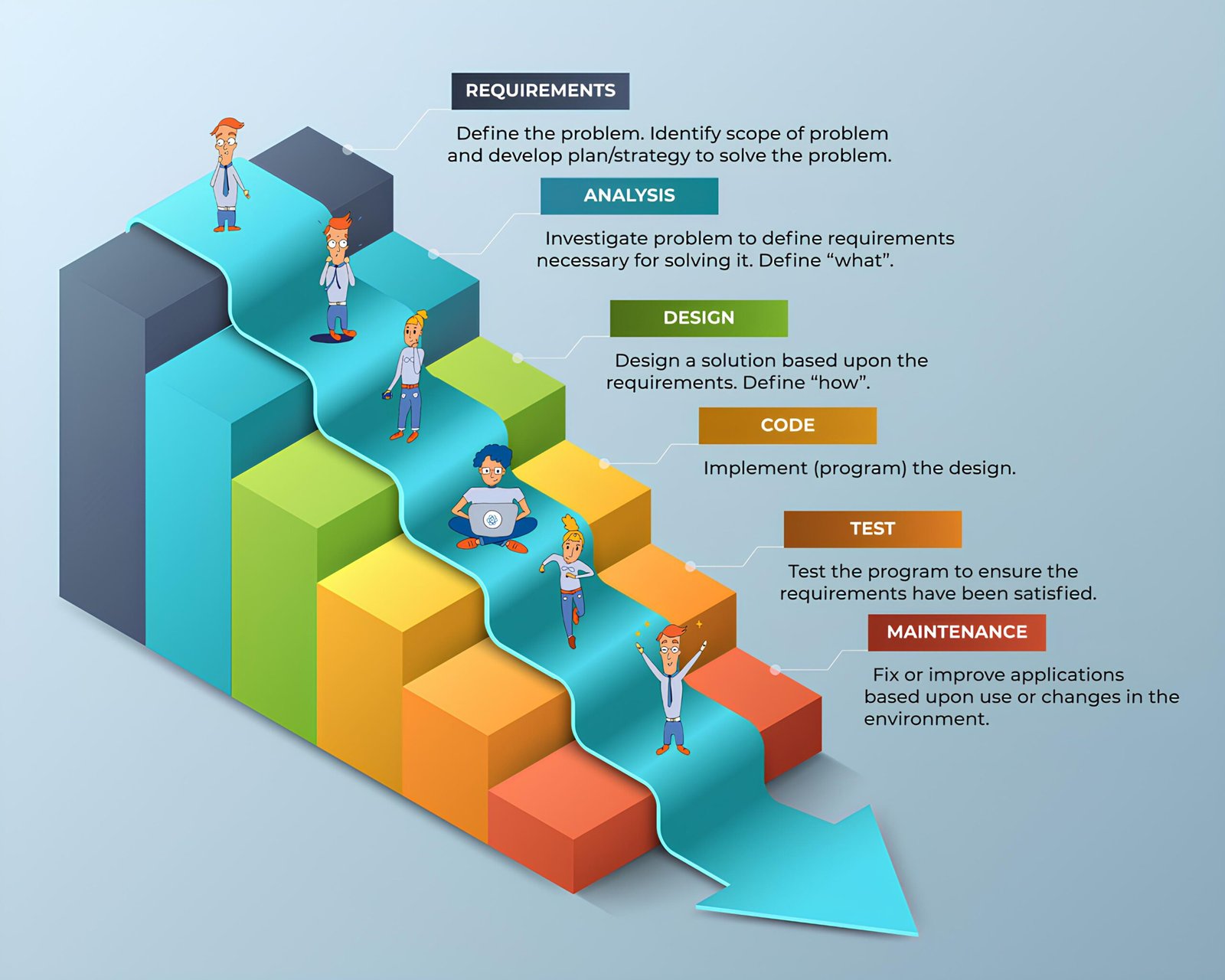Introduction to AI ethics and regulation
As we delve deeper into the digital age, the rapid advancements in Artificial Intelligence (AI) technology have brought about a host of ethical concerns that need to be addressed. The integration of AI into various aspects of our lives has sparked debates about the ethical implications and the need for regulation to ensure its responsible and fair use.
In this article, I will explore the importance of AI ethics in the digital age, the ethical concerns surrounding AI technology, current regulations in place, the role of government in regulating AI, the impact of AI on privacy and data protection, AI bias and fairness issues, challenges in implementing AI ethics and regulation, best practices for organizations in navigating AI ethics, and future trends in AI ethics and regulation.
In the digital landscape, the importance of AI ethics cannot be overstated. AI systems, ranging from recommendation algorithms to autonomous vehicles, have the power to influence our decisions and actions. Ethical considerations such as transparency, accountability, and fairness are crucial to ensure that these systems benefit society as a whole. Without proper oversight, there is a risk of AI being used in ways that infringe on privacy, perpetuate biases, or even pose physical risks to individuals.
Ethical concerns surrounding AI technology often revolve around issues such as bias and fairness. AI algorithms are only as unbiased as the data they are trained on, and if this data reflects historical prejudices or inequalities, the AI system can perpetuate and even amplify these biases.
For example, in hiring practices, AI-driven tools may inadvertently discriminate against certain demographics if the training data is biased. Ensuring fairness in AI applications requires careful attention to the data used for training, as well as ongoing monitoring and evaluation of AI systems in real-world settings.
In response to these concerns, governments and regulatory bodies around the world are beginning to implement frameworks and guidelines for the ethical development and use of AI. These regulations often include requirements for transparency in AI systems, mechanisms for accountability when AI systems fail or cause harm, and safeguards for privacy and data protection. For instance, the European Union’s General Data Protection Regulation (GDPR) includes provisions that apply to AI systems, such as the right to explanation when automated decisions are made.
Moreover, the impact of AI on privacy and data protection is a significant area of concern. With AI systems processing vast amounts of personal data, questions arise about how this data is collected, stored, and used. Privacy regulations such as the GDPR aim to protect individuals’ rights regarding their data, but the complex nature of AI adds layers of challenge. Organizations must navigate the balance between utilizing data for AI advancements and respecting individuals’ privacy rights, often facing dilemmas regarding data anonymization, consent, and the potential for re-identification.
However, the landscape of AI ethics and regulation is complex and rapidly evolving. Challenges remain in implementing and enforcing these regulations effectively, especially given the pace of innovation in AI technology. Organizations face the task of not only complying with existing regulations but also staying ahead of emerging ethical issues.
This includes adopting best practices such as conducting regular ethical assessments of AI systems, fostering a culture of ethical responsibility within their teams, and engaging with stakeholders to understand the broader societal impacts of their AI applications.
Looking to the future, the field of AI ethics and regulation is poised for continued growth and evolution. As AI technologies become more sophisticated and pervasive, the need for clear ethical guidelines and robust regulatory frameworks will only increase.
Emerging technologies such as AI-powered deepfakes and autonomous drones present new ethical challenges that will require careful consideration. Moreover, the global nature of AI means that international cooperation and coordination will be essential in developing consistent standards for AI ethics and regulation across borders.
The importance of AI ethics in the digital age
With the increasing prevalence of AI in our daily lives, it is crucial to prioritize ethics to ensure that AI is developed and used in a responsible and accountable manner. AI systems have the potential to influence decision-making processes, impact human rights, and perpetuate biases if not properly regulated.
The ethical implications of AI extend to various domains, including healthcare, finance, transportation, and employment. It is essential to have a robust framework of AI ethics to guide the development and deployment of AI technologies, taking into consideration the potential risks and unintended consequences.
Ethical concerns surrounding AI technology

AI technology raises several ethical concerns that need to be addressed to ensure its ethical and responsible use. One of the primary concerns is the potential for AI systems to perpetuate biases and discrimination. AI algorithms are trained on historical data, which may contain biases that can be inadvertently amplified, resulting in biased outcomes. For example, biased algorithms used in recruitment processes can perpetuate gender or racial biases in hiring decisions.
Another issue is the influence of AI on privacy and data protection. AI systems often require access to vast amounts of personal data, raising concerns about data privacy, consent, and the potential misuse of personal information. Additionally, there are concerns about the accountability and transparency of AI systems, as the complex nature of AI algorithms makes it difficult to understand and explain their decision-making processes.
Current regulations in place for AI ethics
Recognizing the need to address the ethical implications of AI, several countries and organizations have started implementing regulations and guidelines. The European Union, for instance, has introduced the General Data Protection Regulation (GDPR), which aims to protect the privacy and data rights of individuals. The GDPR provides guidelines on the collection, storage, and use of personal data, including AI systems that process such data.
Additionally, organizations like the Institute of Electrical and Electronics Engineers (IEEE) and the Partnership on AI have developed ethical guidelines and principles for the development and use of AI technologies. These regulations and guidelines serve as a starting point in addressing the ethical concerns surrounding AI, but there is still a need for comprehensive and enforceable regulations that cover all aspects of AI development and deployment.
The role of government in regulating AI
Government plays a crucial role in regulating AI to ensure its ethical and responsible use. Governments need to establish clear guidelines and regulations that outline the ethical standards and obligations for AI developers and users. They should also allocate resources for research and development of AI ethics and provide support to organizations in implementing ethical practices.
Furthermore, governments need to collaborate with international bodies and organizations to create global standards for AI ethics. This collaboration is vital as AI technologies transcend national borders, and a unified approach is necessary to address the ethical concerns associated with AI on a global scale.
The Influence of AI on Privacy and Data Protection
The integration of AI technologies often requires access to large amounts of personal data, raising concerns about privacy and data protection. AI systems must adhere to strict data protection regulations to ensure that personal data is collected, stored, and used in a lawful and ethical manner. Organizations using AI should implement privacy-by-design principles, ensuring that privacy and data protection are embedded into the development process.
Additionally, individuals should have control over their personal data and be provided with clear information on how their data is being used by AI systems. Robust encryption and security measures should also be in place to protect personal data from unauthorized access or breaches.
AI bias and fairness issues
One of the significant ethical concerns surrounding AI is its potential to perpetuate biases and discrimination. AI algorithms are trained on historical data, which may contain biases that can be amplified and perpetuated by the algorithms. This can result in biased outcomes in decision-making processes, such as hiring, loan approvals, and criminal justice.
To address this issue, organizations should ensure that their AI systems are trained on diverse and representative datasets. Regular audits and testing should be conducted to identify and mitigate biases in AI algorithms. Transparency and explainability of AI systems are also important in ensuring fairness and accountability.
Challenges in implementing AI ethics and regulation
Implementing AI ethics and regulation poses several challenges. One of the significant challenges is the fast-paced nature of AI development, which often outpaces the regulatory frameworks. As AI technology evolves rapidly, it becomes challenging for regulations to keep up with the latest advancements.
Additionally, the complexity of AI algorithms makes it difficult to understand and interpret their decision-making processes, posing challenges in ensuring transparency and accountability. Moreover, the lack of standardized metrics and evaluation methods for AI ethics makes it challenging to assess the ethical implications of AI technologies accurately. Overcoming these challenges requires collaboration between governments, organizations, and researchers to develop agile and adaptable regulatory frameworks.
Best practices for organizations in navigating AI ethics
Organizations can navigate AI ethics by adopting best practices that promote responsible and accountable use of AI technologies. Firstly, organizations should establish dedicated AI ethics committees or boards that oversee the development and deployment of AI systems. These committees should comprise experts in AI ethics, data privacy, and legal compliance.
Secondly, organizations should conduct regular audits and assessments of their AI systems to identify and mitigate biases, ensure transparency, and assess the impact on privacy and data protection. Thirdly, organizations should prioritize the recruitment and training of diverse teams to develop and test AI algorithms, ensuring that biases are minimized. Lastly, organizations should actively engage in industry collaborations and partnerships to share best practices, research findings, and collectively develop ethical standards for AI.
Future trends in AI ethics and regulation
As AI continues to evolve, the field of AI ethics and regulation will also undergo significant developments. One potential trend is the increased focus on explainable AI, where AI algorithms are designed to provide transparent explanations for their decisions. Explainable AI can enhance trust and accountability in AI systems and help address concerns about bias and fairness. Another trend is the growing importance of international collaboration and standardization in AI ethics.
With AI being a global phenomenon, it is crucial to establish global standards and guidelines to ensure ethical and responsible use of AI technologies across borders. Additionally, the development of AI-specific regulatory bodies and frameworks is likely to emerge to address the unique ethical challenges posed by AI.
Conclusion
Navigating the ethical landscape of AI ethics and regulation in the digital age is of paramount importance to ensure the responsible and accountable use of AI technologies. The ethical concerns surrounding AI, such as bias, privacy, and transparency, demand comprehensive regulations and guidelines. Governments, organizations, and international bodies must collaborate to establish global standards and frameworks that address the ethical implications of AI.
By adopting best practices and prioritizing ethical considerations, organizations can navigate the complex terrain of AI ethics and contribute to a future where AI technologies are developed and used in a way that upholds human rights, fairness, and privacy.
Subscribe to our newsletter to receive future updates on Technology, Artificial Intelligence (AI), and Tech Trends. Explore our categories to find more relevant stuff. Stay informed and motivated with our most recent insights!




